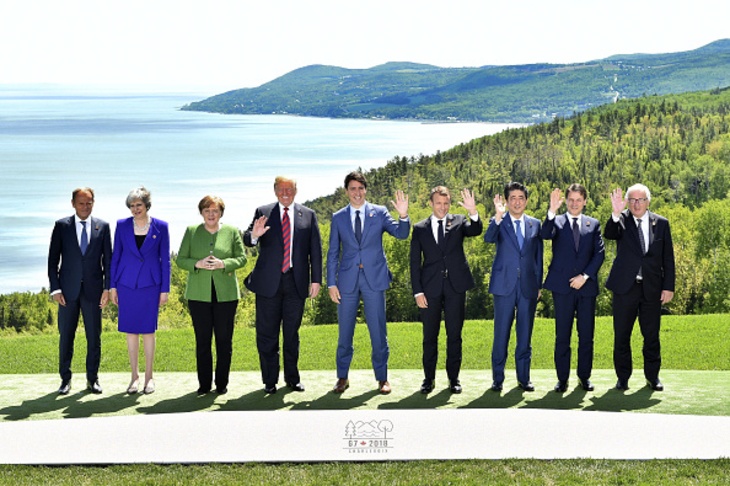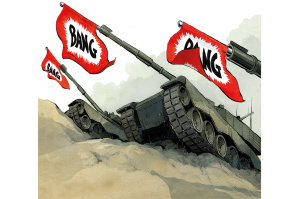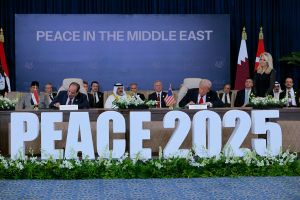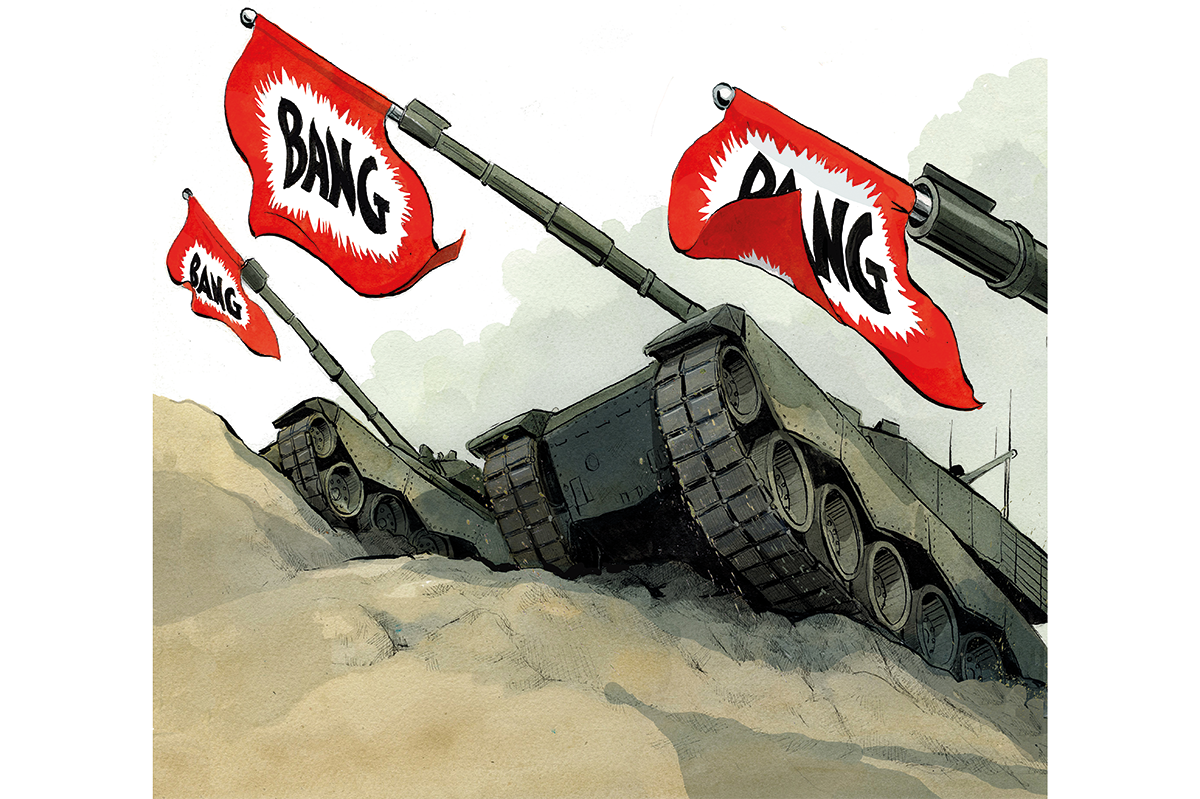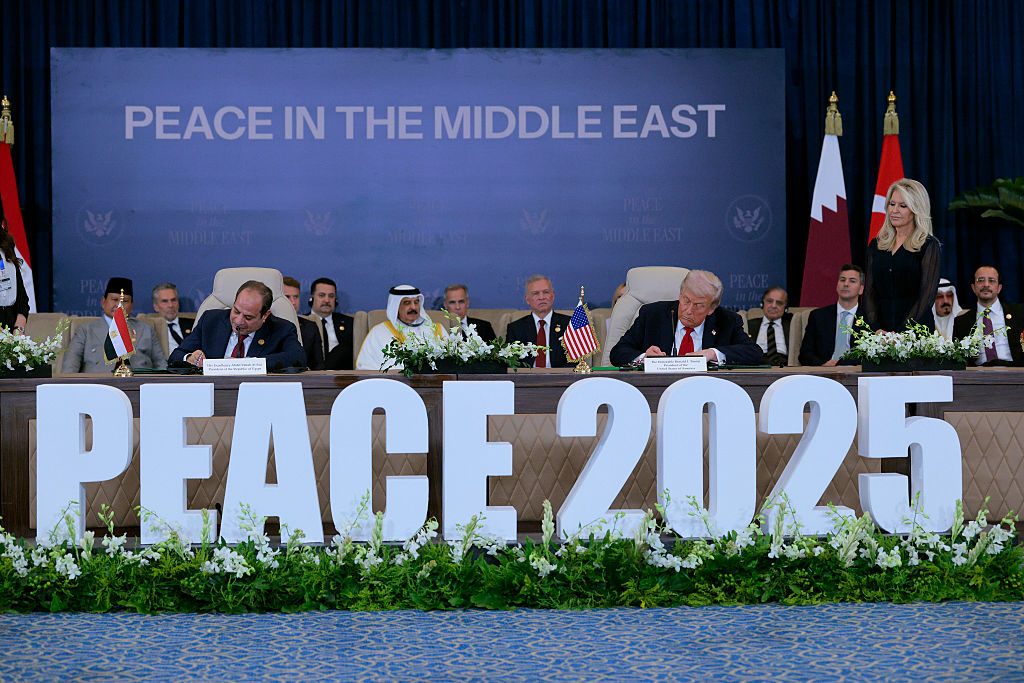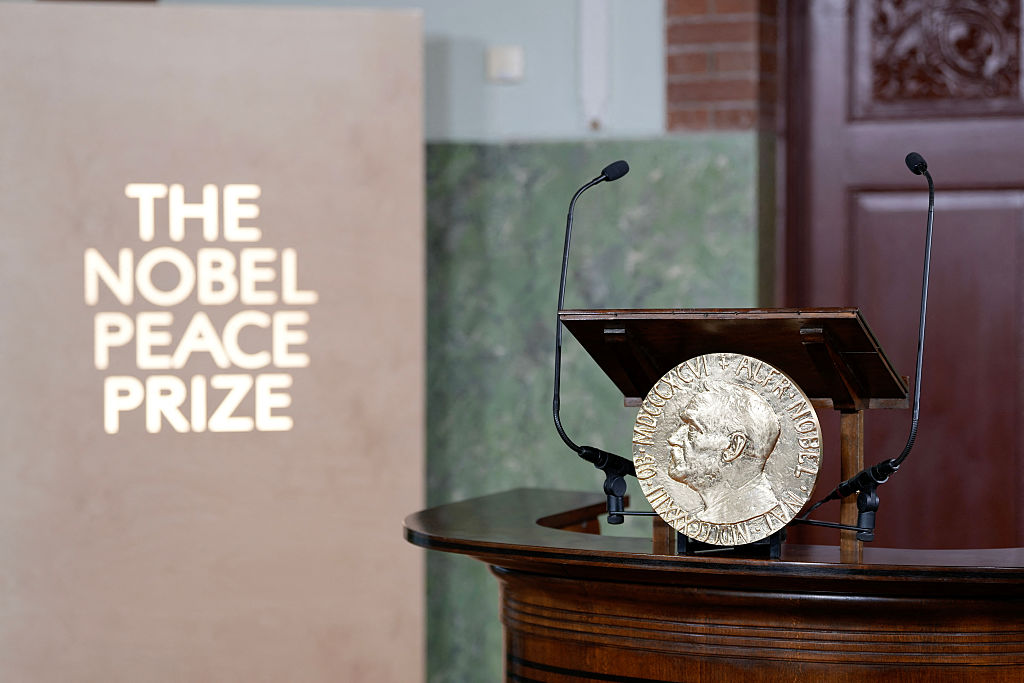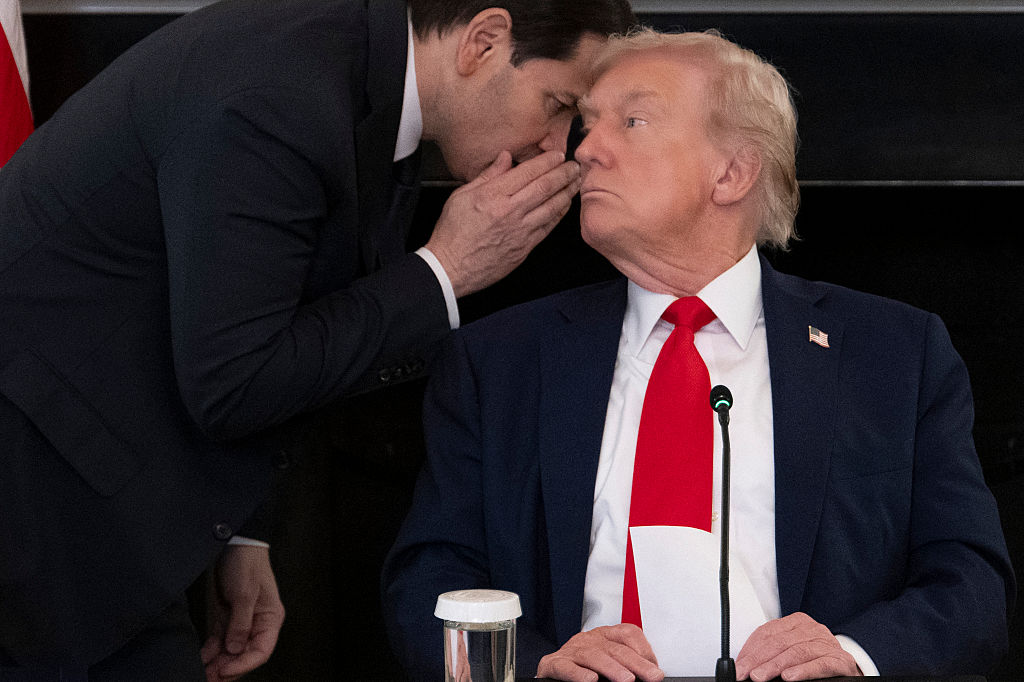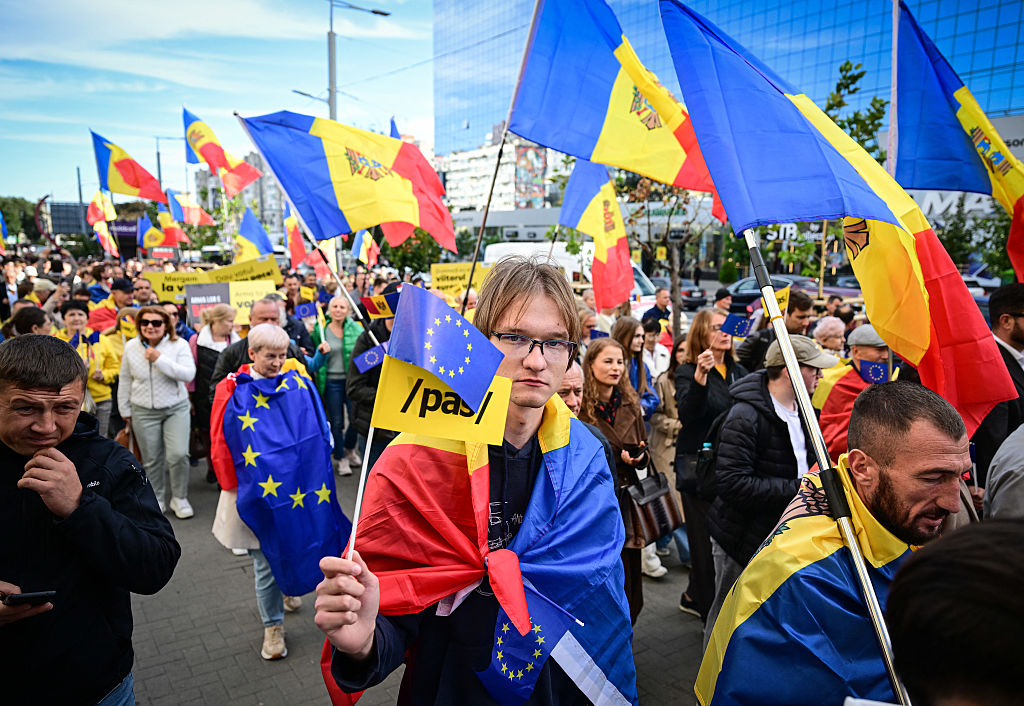The big question that hangs over Donald Trump’s trip through Europe is not whether America’s NATO allies should spend more on defence or whether Vladimir Putin poses an overriding strategic threat to the continent. The big question is this: why should Uncle Sam continue to provide the military assets and leadership across the pond as it has for the past 70 years?
The answer lies in understanding that the concept of a united political West is a tenuous and unconvincing one. Indeed, it should have been moribund since the fall of the Berlin Wall and the demise of Soviet Communism. It’s now collapsing.
True, the West has an obvious and historically glorious validity. It has been and will remain a culture defined by representative democracy, the rule of law, the market economy and so on. But a common civilisation is one thing, political unity is another; and they should not be confused.
As far back as anyone remembers, the leaders attending NATO summit meetings have put on a display of Western unity, no matter how contentious the issues. However, even if Trump were not president, the political unity of the post-war era was always going to give way to differences of interests and strategies as each of the major actors searches for its own security.
All this was foreshadowed 25 years ago in the most important article published about the emerging post-Cold War world, and America’s place in it. No, I do not mean “The End of History” or “The Unipolar Moment” or “The Clash of Civilisations” – all highly influential theses that made the respective authors Francis Fukuyama, Charles Krauthammer and Samuel Huntington famous among the elites.
I am referring to a rarely-cited essay, “The Collapse of the West”, that appeared in Foreign Affairs (September/October 1993.) The author was Owen Harries, the Welsh-born Australian editor of the Washington-based National Interest (1985-2001), and he predicted the West would cease to exist as a political or military entity. The utterly changed circumstances of new era, he argued, justified a radical rethinking of the western alliance.
During the Cold War, the conventional wisdom held that “the West” was a given, a natural presence and one that was here to stay. However, as Harries noted, the political West was not a “natural construct but a highly artificial one.” In fact, notwithstanding the Cold War, the West had almost always been deeply divided politically. Its history had been studied with internecine conflicts and vicious intramural wars, culminating in both world wars – which, in civilisational terms, were essentially western civil wars.
Again, for most of its history, the US had been deeply suspicious of, and hostile towards, European power politics, stressing its differences from the older continent. In the brief interludes when Europe and America were together as the West, Harries observed, “desperation and fear had been its parents, not natural affinities,” he argued. They had been the forces that have driven Europeans to unite among themselves and to associate with the US, a nation long viewed by many Europeans as unsophisticated in world affairs.
“It took the presence of a life-threatening overtly hostile ‘East’ to bring [the West] into existence” as a strategic entity. “It is extremely doubtful whether it can now survive the disappearance of that enemy.”
It’s taken a quarter of a century, but Harries has been vindicated. The clash between Brussels and the most unsophisticated American leader in history will prove to be the breaking point in the political West. This is not just because of Donald Trump’s boorish behaviour. Nor is it simply because of disputes over tariffs, Iran, defence spending and climate change. The political West will collapse because of broad historical forces, which Harries identified in his landmark essay.
Take NATO. The Atlantic alliance was a magnificent achievement in containing Soviet power. But the Soviet Union has not existed since 1991 and there was never any clear and present danger to justify NATO expansion in the 1990s and 2000s. As George Kennan — another distinguished foreign-policy realist — warned two decades ago, enlargement was a big mistake. It just provoked a humiliated Russia into using force to protect its traditional sphere of influence.
Moreover, the US was never serious about defending regions that Americans were not prepared to fight for even at the height of the Cold War. And there has never really been much public support for extending security commitments that could be clearly justified in terms of vital national interests.
One might think there is a serious Russian threat in the east that will ultimately keep NATO together. The foreign-policy establishment in Washington, which is suffering from acute Russophobia, subscribes to this view.
But facts tell a different story. Russia is a declining great power. Its economy is primarily reliant on commodities, it faces a serious demographic crisis and it’s not capable of purposeful military action beyond eastern Ukraine and southwestern Syria. In any case, as Pat Buchanan points out, “Europe today is not afraid of Vladimir Putin reaching the Rhine. Europe is afraid of Africa and the Middle East reaching the Danube.”
NATO’s problems are compounded by the fact that America’s real threat is China, and its dramatic rise creates powerful incentives for the Americans to get out of Europe and concentrate its forces in East Asia. This, remember, justified Barack Obama’s so-called pivot. It is also worth noting that the Europeans will be of no help to Washington in dealing with Beijing. Indeed, they may even be a hindrance if they continue to transfer so-called dual-use technologies to China.
Enter Trump, who wants to avoid what the nineteenth-century British Prime Minister Lord Salisbury called “the commonest error in politics,” which is “sticking to the carcasses of dead policies.” He is surely right to complain that an overwhelming majority of America’s 28 NATO allies are free riders on the Pentagon. Even his predecessor, a president who received rock-star status in Europe, repudiated America’s European friends for the failing to spend 2 per cent of their economic output on defence.
Trump is deeply hostile to the existing international order, and he is every bit as hostile to the EU as he is to NATO. When he ran for the presidency in 2016, Trump argued that the foreign-policy elites – from the liberal interventionists on the left to hawks and neoconservatives on the right — had been so wrong about so many issues in the post-Cold War era (NATO expansion, Iraq, Afghanistan, Libya, China, financial crisis) that a new way of addressing the world was warranted.
He swept through the Republican primaries before defeating the queen of the liberal establishment Hillary Clinton. From his perspective, “America First” has a mandate.
Of course, once the political outsider was inside the White House, many believed the vulgar and intemperate Trump would be trapped in an iron cage and unable to implement his radical agenda. And for the first year or so, it looked like The Donald would be tamed, as Mattis, McMaster, Kelly and Tillerson boxed him in. The only time he has attracted media praise, remember, was when he bombed Syria! Those days are over. Trump is untethered, on the loose and doing pretty much whatever he wants. In other words, he is free to jettison the Europeans.
Angela Merkel caught the significance of all this early on. According to the German Chancellor more than a year ago, “the times in which we could rely fully on others ‒ they are somewhat over” which means that “we Europeans must really take our fate into our own hands”.
So Trump is having the last laugh. This is not just because he has higher approval ratings in the US than the rapidly diminishing Merkel has in Germany – or, for that matter, Emmanel Macron, Justin Trudeau, Theresa May and others have in their countries. It is also because he has contempt for wimps, such as Europe’s leaders, who are afraid to confront him. Trump takes great pleasure in taunting them and even hurting them further politically. Think of the French president’s pathetic attempt to grovel in the White House in April only to see his host brush off his dandruff.
Given all this – Trump’s temperament, his hostility toward NATO and European leaders, the lack of an overriding strategic threat to Europe, the broad historical forces that Owen Harries had foreshadowed a quarter century ago — it is difficult to see how NATO remains a viable entity. And if the Donald wins the next election – a plausible prospect so long as his trade protectionism does not disrupt America’s booming economy – then the game is up for Brussels. Two Trump terms is more than enough time to consign the world’s greatest alliance to the ash heap of history.



